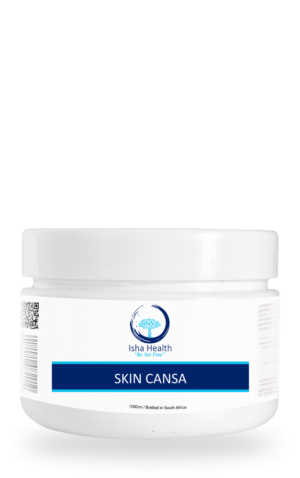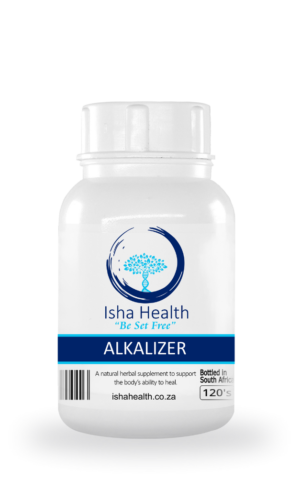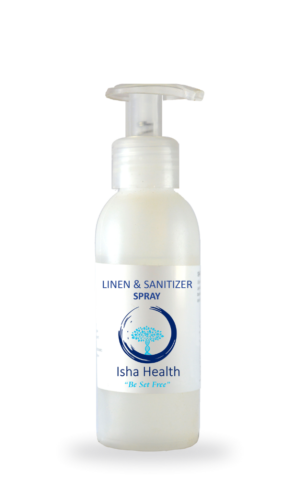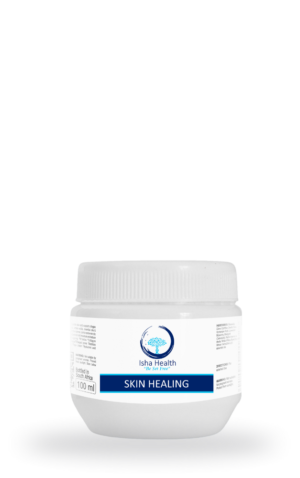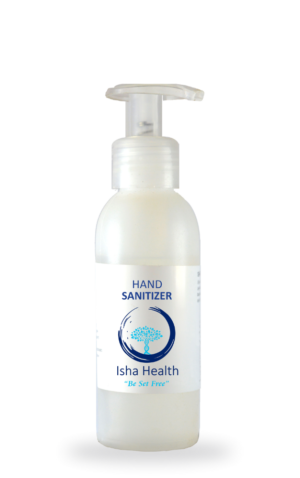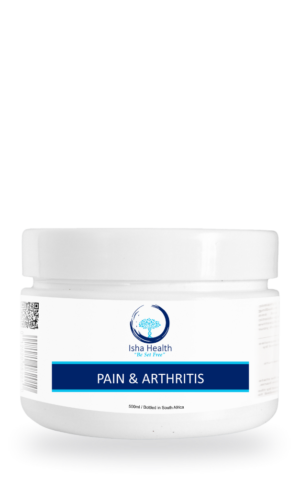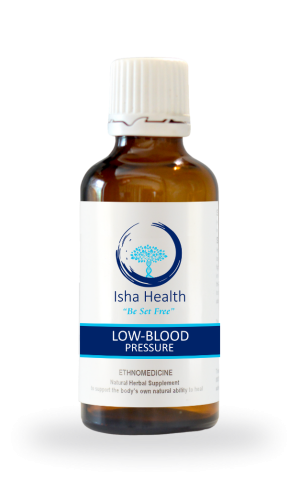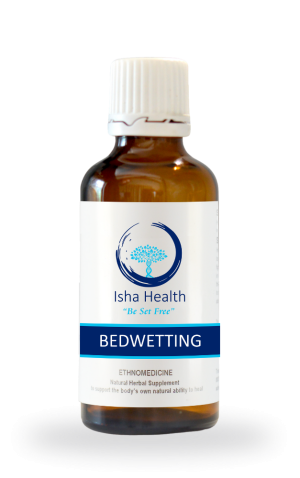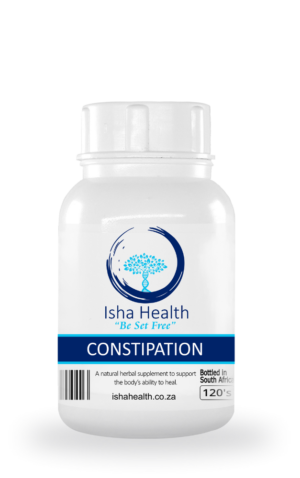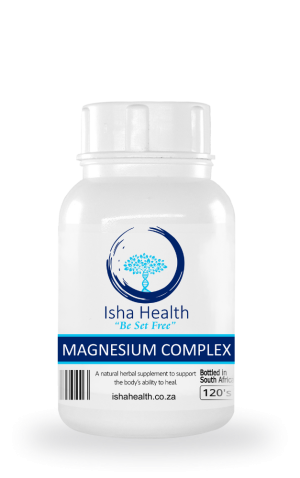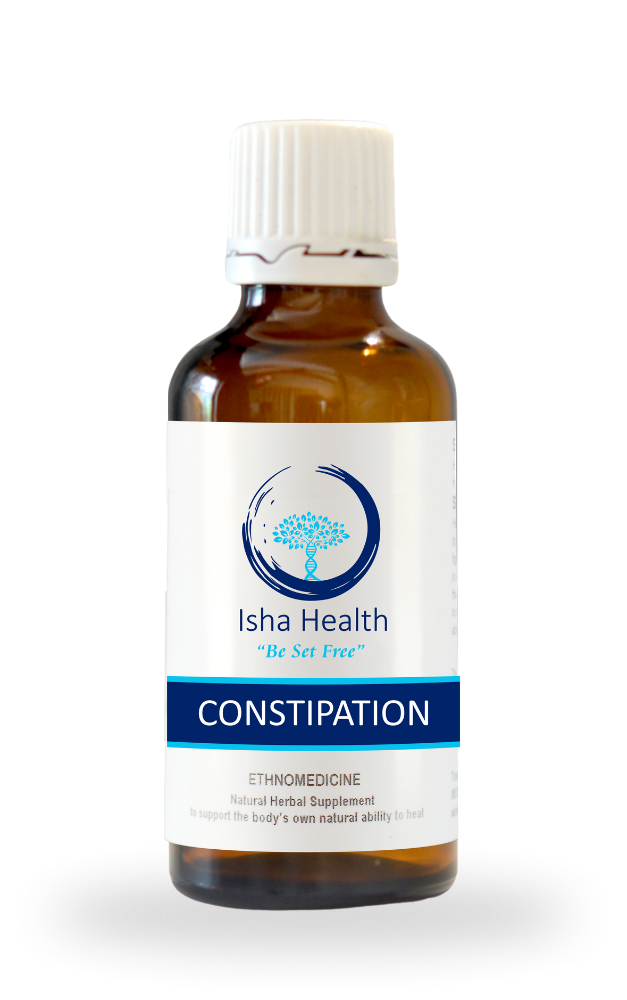
Description
Directions for Use
Ingredients
Warning
Technical Information
Our natural herbal Constipation Supplement provides gentle, natural relief while supporting the body’s own rhythm for healthy bowel movements. It combines fast-acting elements that stimulate motility with fibres that soften and bulk the stool, soothing agents that protect and repair the intestinal lining, and nutrients that sustain peristalsis, hydration, and long-term digestive balance. This holistic approach eases discomfort, promotes regularity, and restores overall gut well-being.
Adults:
6–8 sprays, 1–2x daily.
Children 4–12 yrs:
2–3 sprays, 1–2x daily.
Children 12–16 yrs:
same as adults.
1 spray = 4 drops. Take 20 min before meals.
Aloe
Calendula
Cascara Sagrada
Chicory
Cloves
Fenugreek
Liquorice Root
Marshmallow Root
Psyllium
Senna
Slippery Elm
Walnut Hulls
Wormwood
Other African Herbs
Alcohol (Tincture)
Aloe marlothii: Gently stimulates the colon’s nerves and draws water into the bowel to soften hard stools and get things moving.
Calendula: Soothes and repairs irritated gut lining, reducing friction and discomfort during bowel movements.
Cascara Sagrada: Classic stimulant laxative—activates the colon’s peristalsis and limits water reabsorption so stools are easier to pass.
Chicory Root: Inulin fibre feeds friendly flora; more butyrate = better colonic tone and softer, bulkier stools.
Cloves: Antimicrobial/antiparasitic and mildly stimulating; helps clear bugs that slow motility and eases bloating.
Fennel Seed: Relieves spasm and gas, reducing painful cramping and helping waves of peristalsis flow.
Lion’s Mane: Nerve-nourishing mushroom that supports the enteric nervous system and mucosal repair—useful in long-standing sluggishness.
Marshmallow Root: Thick soothing mucilage coats the gut and protects tender tissue, helping hard stools pass with less pain.
Psyllium Seed: Gold-standard bulking fibre—forms a soft gel that stretches the colon just enough to trigger natural peristalsis.
Pumpkin Seed: Fibre for bulk plus antiparasitic cucurbitacins; supports cleaner, healthier transit.
Rhubarb Root: Balanced stimulant: anthraquinones nudge movement; tannins prevent over-looseness.
Senna Leaves: Strong, reliable stimulant that triggers colon contractions and keeps water in the stool—best used short-term.
Slippery Elm: Thick protective gel that soothes, heals, and lubricates—excellent when stools are hard and the lining is sore.
Calcium Bisglycinate: Supports nerve–muscle signaling in the colon for steady contraction–relaxation cycles.
Glycine: Calms overactive gut nerves and supports collagen for a healthier mucosal barrier.
L-Arginine: Boosts nitric oxide for better blood flow and coordinated motility; eases outlet resistance.
L-Glutamine: Primary fuel for gut cells—repairs and seals the lining to reduce irritation-driven sluggishness.
Magnesium Bisglycinate: Relaxes bowel muscle and draws water into the colon—top nutrient for ease of passage.
Omega-3: Anti-inflammatory and lightly lubricating—helps the colon stay supple and responsive.
Potassium Citrate: Key electrolyte for smooth-muscle contractions; supports natural peristaltic waves.
Taurine: Conjugates bile for better stool lubrication and steadier muscle tone.
Vitamin B5: Energy cofactor that supports enteric nerves and smooth muscle function.
Vitamin B6: Helps make serotonin/GABA—neurotransmitters that coordinate the bowel’s rhythm.
Vitamin C: Antioxidant; at higher amounts can gently draw water into the bowel for softer stools.
Vitamin D3: Supports calcium signaling and gut immunity—better tone, less inflammatory slowdown.
Vitamin E: Protects the intestinal lining from oxidative stress, aiding comfortable movement.
Not suitable for pregnant woman.
Protect from sunlight.
Store below 25°c.
Our Natural Herbal Constipation product operates through several mechanisms that aid in relieving constipation. It contains dietary fibers like psyllium, which bulks up the stool and stimulates peristalsis, promoting regular bowel movements. Additionally, ingredients such as Cascara Sagrada and Senna exert laxative effects by slowing down the absorption of water and electrolytes in the intestines and improving bowel peristalsis, respectively.
Constipation is a common gastrointestinal condition characterized by infrequent or difficult bowel movements. It can significantly impact an individual’s quality of life, leading to discomfort, pain, and even more severe health issues if left untreated. To fully understand constipation, its causes, prevention, and associated risks and diseases, it’s important to delve into the intricacies of this condition.
How it works:
- Stimulates natural bowel movement: Anthraquinone-containing herbs (aloe, cascara, senna, rhubarb) act on the enteric nervous system, triggering peristaltic contractions in the colon. This stimulates the natural rhythm of the bowels and encourages stool evacuation.
- Softens and bulks the stool: Fibres from psyllium, flaxseed, fenugreek, and burdock absorb water, increasing stool volume and softness. This distension activates colonic stretch receptors, promoting peristalsis without harsh irritation.
- Calms intestinal spasms: Nervine and carminative herbs (chamomile, fennel, peppermint, lemon balm, valerian) modulate smooth muscle tone, reducing painful cramps, bloating, and gas while preserving normal motility.
- Protects and repairs mucous lining: Demulcents (marshmallow, slippery elm, plantain, calendula, liquorice) coat the intestinal lining with a soothing mucilage layer. This reduces friction from hardened stools, accelerates mucosal healing, and enhances secretion of protective mucus.
- Improves bile flow and lubrication: Bile-stimulating herbs (artichoke, milk thistle, gentian, yellow dock, wormwood) increase bile production and flow into the intestines. Bile emulsifies fats, improves lubrication of stool, and prevents dryness and hardness.
- Balances gut microbes and cleanses parasites: Antimicrobials and antiparasitics (garlic, wild garlic, walnut, wormwood, cloves, thyme, myrrh) suppress harmful bacteria, fungi, and worms that may slow motility or irritate the colon, restoring a healthy gut microbiome.
- Reduces inflammation and oxidative stress: Anti-inflammatory herbs and antioxidants (turmeric, green tea, reishi, cancerbush, lion’s mane, rhodiola) reduce cytokine activity and oxidative damage in the colonic wall. This prevents rigidity and improves mucosal flexibility.
- Supports nerve and muscle function: Amino acids and minerals (magnesium, potassium, calcium, glycine, taurine, arginine, glutamine) restore smooth muscle contraction–relaxation cycles, provide osmotic stool-softening action, and regenerate the enteric nervous system and mucosal tissue.
- Provides long-term digestive support: Vitamins C, D3, E, B5, and B6 support collagen synthesis, immune balance, neurotransmitter function, and epithelial regeneration. Together, they maintain healthy mucous membranes, prevent relapse, and strengthen long-term digestive resilience.
Timeline-style table for our Constipation Supplement showing when each ingredient acts (immediate, short-term, medium-term, long-term) and how it helps.
Constipation Supplement Timeline of Action
| Timeframe | Ingredients | Main Actions |
| Immediate (0–6 hours) | Aloe marlothii, Cascara Sagrada, Senna Leaves, Rhubarb Root, Ginger, Peppermint | Stimulate colon nerves for peristalsis (anthraquinones: aloin, cascarosides, sennosides, emodin). Increase motility, reduce water reabsorption (softer stool). Ginger and peppermint relax spasm, ease cramps, reduce gas for more comfortable passage. |
| Short-Term (6–24 hours) | Fennel, Chamomile, Cinnamon, Cloves, Lemon Balm, Valerian, Passionflower, Wilde Dagga | Calm spasms (GABAergic, calcium channel modulation). Carminatives reduce bloating and pressure, easing stool flow. Nervine relaxants (valerian, passionflower) settle stress-driven bowel tension. |
| Medium-Term (1–3 days) | Psyllium Seed, Flaxseed, Fenugreek, Burdock, Chicory Root, Dandelion, Plantain, Marshmallow, Slippery Elm, Calendula | Bulking and softening fibres absorb water (psyllium, flax, fenugreek). Prebiotics (inulin from chicory, burdock, dandelion) feed gut flora → SCFAs → stimulate motility. Demulcents (marshmallow, slippery elm, plantain, calendula) coat, heal, and lubricate mucosa for smoother stool passage. |
| Medium–Long Term (3–7 days) | Milk Thistle, Artichoke, Gentian, Wormwood, Yellow Dock, Green Tea, Turmeric, Cancerbush, Rhodiola, Lion’s Mane, Reishi | Improve bile flow (artichoke, milk thistle, yellow dock, wormwood) to lubricate stool. Adaptogens (cancerbush, rhodiola) balance stress-related bowel disruption. Anti-inflammatory and antioxidant herbs (turmeric, green tea, reishi) reduce mucosal rigidity. Lion’s Mane regenerates gut nerves for better long-term motility. |
| Cleansing & Anti-Parasitic (variable) | Garlic, Wild Garlic, Walnut Leaves & Shells, Cloves, Thyme, Myrrh, Wormwood | Antimicrobial, antifungal, antiparasitic compounds (allicin, juglone, thymol, eugenol, sesquiterpenes) restore microbial balance. Prevent parasites/toxins from slowing gut transit. |
| Nutrient Support (daily ongoing) | Magnesium Bisglycinate, Potassium Citrate, Calcium Bisglycinate, Glycine, L-Arginine, L-Glutamine, Taurine, Omega-3, Vitamins B5, B6, C, D3, E | Electrolytes (Mg, K, Ca) maintain smooth muscle contractions and water balance. Amino acids (glycine, arginine, glutamine, taurine) repair mucosa, regulate nerves, and promote bile flow. Vitamins C, D3, E reduce inflammation, protect tissue, and improve neuromuscular tone. B5 and B6 support neurotransmitter and energy metabolism for bowel rhythm. |
This layered action means:
- Immediate relief comes from stimulant laxatives and spasm-easing herbs.
- Short-term comfort comes from carminatives and nervines.
- Medium-term repair is driven by fibre, mucilage, and prebiotics.
- Long-term resilience is supported by adaptogens, bile enhancers, antimicrobials, and nutrients.
Understanding Constipation:
Constipation occurs when the stool moves too slowly through the digestive tract, leading to excessive water absorption in the colon. This results in the formation of hard, dry stools that are challenging to pass. Several factors contribute to this condition:
Constipation occurs when stool moves too slowly through the digestive tract, allowing excessive water absorption in the colon. This leads to dry, hard stools that are difficult to pass. While occasional constipation is common, chronic constipation can significantly impair quality of life and may signal underlying health conditions.
Symptoms of Constipation
Constipation manifests in several ways, and not all patients present with the same pattern. Common symptoms include:
- Infrequent bowel movements: Fewer than three per week is generally considered constipation.
- Straining: Difficulty initiating or completing a bowel movement, often with prolonged time on the toilet.
- Hard, lumpy stools: Typically small, pebble-like stools that indicate slowed colonic transit and dehydration.
- Sensation of incomplete evacuation: Patients may feel they have not fully emptied the bowel, even after passing stool.
- Abdominal bloating and discomfort: Accumulated stool can cause gas retention, distension, and cramping.
- Systemic symptoms: Long-standing constipation can lead to reduced appetite, nausea, headaches, fatigue, and irritability due to toxin build-up or altered gut–brain signaling.
Types of Constipation
Constipation can be classified into different types, each requiring tailored management:
- Acute Constipation: Sudden onset, often linked to changes in diet, dehydration, travel, or new medications. Typically resolves when the trigger is removed but can sometimes signal obstruction.
- Chronic Functional Constipation: Lasts several weeks to months. Often associated with poor diet, low fluid intake, sedentary lifestyle, or dysregulation of the enteric nervous system.
- Secondary Constipation: Caused by another condition, such as hypothyroidism, diabetes, Parkinson’s disease, multiple sclerosis, or as a side effect of opioids, antidepressants, and iron supplements.
- Slow-Transit Constipation: The colon moves stool abnormally slowly, often due to reduced nerve or muscle activity in the bowel wall.
- Outlet Obstruction Constipation: Patients feel the urge to defecate but cannot pass stool effectively due to issues such as pelvic floor dysfunction, rectocele, or anal fissures.
Causes of Constipation
Constipation is rarely due to a single cause. Common contributors include:
- Dietary Factors: Low fibre intake reduces stool bulk, leading to slow transit and harder stools. Excess processed food and insufficient fruits, vegetables, legumes, and whole grains are frequent triggers.
- Fluid Intake: Dehydration or low fluid consumption increases water reabsorption in the colon, producing harder stools. Caffeine and alcohol can worsen dehydration.
- Physical Inactivity: Exercise stimulates peristalsis via mechanical movement of the abdominal wall and activation of the autonomic nervous system. Sedentary habits slow down gut motility.
- Medications: Opioids reduce peristalsis by binding to μ-opioid receptors in the gut. Antacids containing calcium or aluminium, antidepressants (especially tricyclics), antihistamines, and some antihypertensives can also slow bowel movements.
- Medical Conditions: Conditions such as hypothyroidism, diabetes, IBS, pregnancy, and neurological diseases impair gut motility or alter the gut–brain axis, leading to chronic constipation.
- Behavioural & Psychological Factors: Ignoring the urge to defecate, stress, depression, or anxiety can suppress peristalsis through the sympathetic nervous system.
Preventing Constipation
Prevention relies on consistent lifestyle and dietary measures:
- Adequate Fibre Intake: Adults should consume 25–35 g of fibre daily. Soluble fibres (oats, legumes, psyllium) soften stool, while insoluble fibres (whole grains, vegetables) increase bulk and speed transit.
- Hydration: At least 1.5–2 litres of water daily is necessary to maintain soft stools. Herbal teas, soups, and hydrating foods like fruits and vegetables also contribute.
- Exercise: Brisk walking, yoga twists, swimming, or any activity that engages abdominal muscles helps stimulate peristalsis. Even 20–30 minutes daily makes a difference.
- Toilet Habits: Establishing a regular routine, ideally after meals when the gastrocolic reflex is strongest, improves regularity. Using a footstool to elevate the knees can straighten the recto-anal angle, easing evacuation.
- Stress Reduction: Meditation, breathing exercises, and adequate sleep support the parasympathetic nervous system, which enhances bowel motility.
- Supplemental Support: Fibre supplements like psyllium or flaxseed can help if dietary fibre intake is inadequate. Probiotics may also improve colonic flora and stool regularity.
Risks and Diseases Associated with Constipation
Untreated constipation is not just uncomfortable; it can lead to significant complications:
- Fecal Impaction: Hardened stool accumulates in the rectum and cannot be expelled without medical intervention. This may cause pain, nausea, and overflow diarrhoea.
- Haemorrhoids: Straining increases venous pressure in the rectum, leading to swollen, painful veins that may bleed.
- Anal Fissures: Tears in the anal lining caused by passing hard stools lead to pain, spasm, and further avoidance of bowel movements.
- Diverticular Disease: Chronic pressure from straining causes small pouches (diverticula) to form in the colon wall, which can inflame or become infected (diverticulitis).
- Rectal Prolapse: Repeated straining can weaken pelvic floor support, leading to partial protrusion of the rectum through the anus.
- Bowel Obstruction: Rare but serious, large, hardened stools may completely block the bowel, causing severe pain, vomiting, and emergency surgery.
- Colorectal Cancer: Chronic constipation does not directly cause cancer, but prolonged mucosal irritation, inflammation, and toxin exposure are associated with increased risk.
Summary
Constipation is a multifactorial condition with dietary, lifestyle, psychological, and medical contributors. Recognising symptoms early, identifying underlying causes, and adopting supportive strategies such as increased fibre, hydration, exercise, stress reduction, and proper toilet posture are essential for both prevention and treatment.
Addressing constipation not only restores comfort but also protects against serious complications, ensuring better long-term gastrointestinal health.
Dosage:
Dosage Capsules
Adults: 1–2 capsules once or twice daily as needed.
Best taken 20–30 minutes before meals with a full glass of water.
Children 6–12 years: 1 capsule once daily.
Children 12–16 years: 1 capsule twice daily according to age and tolerance.
Dosage TinctureAdults: 6–8 sprays (≈24–32 drops) once or twice daily.
1 spray = 4 drops.
Best taken 20–30 minutes before meals in a little water.
Children 4–12 years: 2–3 sprays (≈8–12 drops) once or twice daily.
Children 12–16 years: same as adult dosage.
Warnings
Not suitable for pregnant or breastfeeding women.
Begin with the lowest dose (1 capsule or 4–6 drops in the evening) and increase gradually as comfortable. Ensure adequate water intake. If cramps are severe or diarrhea occurs, reduce the dose.
Prolonged use of stimulant laxatives (senna, cascara, aloe) should be cycled with breaks or combined with mucosal healing herbs to protect the colon.
Top of Form
Ingredients which are traditionally used for this disorder
Technical info:
African Potato: Contains hypoxosides that are metabolised into rooperol, a powerful antioxidant and anti-inflammatory compound. Within the gastrointestinal tract, rooperol reduces oxidative stress on the colonic mucosa, lowers local cytokine-driven inflammation, and preserves epithelial flexibility. This protection prevents rigidity and irritation of the bowel wall, supporting smoother stool passage and restoring natural motility.
Aloe marlothii: Rich in anthraquinone glycosides such as aloin, which reach the colon largely unmetabolised and are converted by bacteria into active anthrones. These directly stimulate the enteric nervous system, increasing rhythmic peristaltic contractions. In addition, aloin reduces sodium and water reabsorption in the colon, drawing fluid into the stool and ensuring hydration, softening hardened faeces and facilitating elimination.
Angelica Root: Contains coumarins, volatile oils, and flavonoids that influence both the muscular and secretory activity of the digestive tract. Coumarins relax hypertonic intestinal smooth muscle, reducing cramps, while simultaneously stimulating digestive secretions. This dual action helps relieve spasm-induced blockages while restoring the contractile rhythm of the intestines, improving bowel transit.
Artichoke Leaf: Contains cynarin and caffeoylquinic acids that stimulate hepatic bile secretion. Increased bile flow emulsifies fats, improves lubrication of the stool, and provides mild osmotic stimulation of the colon. By improving fat digestion and enhancing enteric secretions, artichoke reduces the risk of intestinal stasis and constipation linked to poor bile output.
Burdock Root: Contains inulin, polyacetylenes, and bitter glycosides that support gut function. Inulin acts as soluble fibre, absorbing water to bulk and soften stool, while also feeding beneficial bifidobacteria in the colon. This production of short-chain fatty acids stimulates colonic motility and improves mucosal energy metabolism, directly assisting in regular stool passage.
Calendula: Contains triterpenoids, carotenoids, and flavonoids that provide anti-inflammatory and reparative activity. These compounds modulate cyclooxygenase pathways and promote epithelial proliferation, accelerating repair of irritated colonic mucosa. Its mucilage and flavonoids soothe inflamed surfaces, reducing friction during evacuation and aiding smooth stool transit.
Cancerbush: Contains canavanine, pinitol, and flavonoids with strong adaptogenic effects. These compounds regulate stress-related neuroendocrine disruption of the bowel, stabilise blood glucose, and modulate nitric oxide in smooth muscle. The combined effect restores bowel rhythm in stress-induced constipation and enhances mucosal resilience against inflammation.
Cascara Sagrada: Contains hydroxyanthracene glycosides (cascarosides A–D) which are converted into active anthrones by colonic bacteria. These compounds stimulate Auerbach’s plexus of the enteric nervous system, increasing coordinated peristaltic activity of the colon. Cascarosides also inhibit reabsorption of sodium and water, leading to hydration of the stool. Together, these actions make cascara one of the most reliable stimulant laxatives for chronic constipation.
Chamomile: Provides flavonoids such as apigenin and volatile oils like matricin that exert spasmolytic effects. These act via GABA-A receptor modulation and calcium channel interference in intestinal smooth muscle, reducing cramping and abdominal pain associated with constipation. By calming bowel hyperactivity while preserving peristalsis, chamomile improves the efficiency and comfort of stool passage.
Chickweed: Contains mucilage and saponins that coat and soothe irritated intestinal surfaces. The mucilage softens and lubricates the stool, reducing friction as it passes through the colon. Chickweed also has mild anti-inflammatory and cooling properties that support mucosal repair and relieve irritation in sluggish bowels.
Chicory Root: Rich in inulin and sesquiterpene lactones. Inulin serves as a fermentable prebiotic fibre, encouraging bifidobacteria proliferation, which produces short-chain fatty acids like butyrate. These lower colonic pH, stimulate motility, and strengthen the mucosal barrier. Sesquiterpene lactones also act as bitters, promoting digestive secretions and enhancing upstream breakdown of food, thereby reducing stagnation in the colon.
Cinnamon: Provides cinnamaldehyde and eugenol, which act as carminatives to reduce gas production and colonic distension. By decreasing luminal pressure, cinnamon facilitates smoother muscular contractions and stool passage. Its volatile oils also stimulate saliva and digestive enzyme secretion, enhancing digestion and preventing upstream stasis that can aggravate constipation.
Cloves: Contains eugenol, which acts as a strong antiseptic, antifungal, and antiparasitic compound. It eradicates intestinal pathogens that may contribute to constipation by disturbing gut flora balance. Eugenol also stimulates digestive secretions, enhances bile flow, and reduces intestinal gas, contributing to more effective peristalsis and bowel clearance.
Comfrey Leaves: Contains allantoin and mucilage polysaccharides. Allantoin stimulates epithelial cell proliferation, accelerating repair of intestinal micro-lesions. Mucilage coats the mucosa, providing a protective layer that reduces irritation caused by hardened stool. These combined actions restore mucosal resilience, allowing stool to move more freely and comfortably.
Dandelion: Provides inulin, taraxacin, and triterpenes, which function as bitters and prebiotic fibres. Inulin promotes stool bulk and hydration, while taraxacin enhances bile secretion, improving stool lubrication. The triterpenes stimulate mild diuretic and laxative activity, collectively enhancing colonic transit and reducing chronic sluggishness.
Elecampane Root: Rich in inulin and sesquiterpene lactones such as alantolactone. Inulin adds stool bulk and promotes beneficial colonic flora, while lactones exert mild antimicrobial activity, preventing pathogen-induced constipation. By supporting mucous membrane function and nourishing colonocytes, elecampane improves both bowel strength and stool passage.
Fennel Seed: Contains volatile oils such as anethole and fenchone. These compounds relax colonic smooth muscle by modulating calcium channels, reducing spasms, bloating, and colic pain. Fennel also increases secretion of gastric and pancreatic juices, thereby promoting better digestion and motility, which indirectly reduces constipation.
Fenugreek Seed: Contains galactomannan fibre, mucilage, and saponins. The fibre absorbs water and forms a gel-like mass that increases stool volume and stimulates colonic stretch receptors. Saponins reduce mucosal irritation and have anti-inflammatory properties, helping the bowel move stool more easily while preventing pain during evacuation.
Flaxseed: Provides both soluble and insoluble fibres, along with lignans and alpha-linolenic acid. Soluble fibre absorbs water to soften stools, insoluble fibre adds bulk, and lignans support microbial metabolism to maintain colonic health. Omega-3 fatty acids reduce local inflammation, ensuring that peristaltic function remains strong and regular.
Garlic: Rich in allicin and other sulphur compounds. These exert antimicrobial and antiparasitic activity, eliminating pathogens that can delay motility and produce toxins contributing to constipation. Garlic also promotes vascular circulation within the gut wall, supporting oxygen delivery to colonic smooth muscle for efficient peristalsis.
Gentian Root: Contains bitter iridoid glycosides such as amarogentin and gentiopicroside. These activate bitter receptors in the oral cavity and gastrointestinal tract, increasing gastric acid, bile secretion, and pancreatic enzymes. This improved digestive activity prevents upstream stasis and indirectly enhances peristaltic reflexes in the colon.
Ginger: Provides gingerols and shogaols that stimulate serotonin (5-HT4) receptors in the enteric nervous system, enhancing coordinated peristalsis. Ginger also accelerates gastric emptying, reduces bloating, and improves intestinal motility. By supporting smooth passage from stomach to colon, ginger indirectly prevents constipation.
Green Tea: Contains catechins, particularly EGCG, which exert anti-inflammatory effects on the colonic mucosa by reducing NF-κB activity. Mild caffeine content increases bowel tone and stimulates peristalsis, while antioxidants protect mucosal cells from oxidative damage linked to chronic constipation.
Lemon Balm: Contains rosmarinic acid and volatile oils that calm hyperactive smooth muscle by modulating GABAergic and cholinergic activity. This reduces spasms without suppressing natural contractions, supporting coordinated bowel activity and easing stool passage.
Lion’s Mane Mushroom: Contains hericenones and erinacines that stimulate nerve growth factor (NGF). These compounds regenerate the enteric nervous system, improving neuronal communication with intestinal smooth muscle. Enhanced neuronal signalling restores rhythmic peristalsis and mucosal integrity, critical for resolving chronic constipation.
Liquorice Root: Contains glycyrrhizin and flavonoids that modulate cortisol metabolism and increase prostaglandin E2 production in the gut. This promotes mucus secretion, reduces inflammation, and accelerates repair of damaged intestinal mucosa. By coating and protecting the bowel lining, liquorice improves stool lubrication and motility.
Lobelia: Contains lobeline, an alkaloid that acts on nicotinic and adrenergic receptors to relax hypertonic smooth muscle and improve blood oxygenation. This reduces cramping while supporting coordinated peristaltic function, enhancing bowel transit in constipated patients.
Marshmallow Root: Very high in mucilage polysaccharides that swell on contact with water, coating and soothing the mucosal lining of the intestines. This protects the bowel from abrasion by hardened stool and facilitates smooth evacuation. Marshmallow also reduces mucosal inflammation and enhances epithelial healing.
Milk Thistle: Standardised to silymarin complex, which stabilises hepatocyte membranes and stimulates bile acid secretion. Increased bile flow emulsifies fats and softens stool, while antioxidant effects protect enterocytes from oxidative damage. Milk thistle also improves detoxification pathways, reducing constipation associated with sluggish liver function.
Myrrh: Contains sesquiterpenes and phenolic resins with potent antimicrobial and antiseptic properties. By reducing harmful bacteria and fungal overgrowth in the colon, myrrh prevents microbial toxins from slowing motility. Its mild astringency tones the mucosa, improving barrier function and reducing secretory inflammation that can contribute to constipation.
Passionflower: Contains flavonoids such as vitexin and alkaloids that act on GABAergic pathways within the enteric nervous system, reducing neural hyperactivity. This relaxes the intestinal wall, relieves spasm-induced blockages, and allows coordinated peristalsis to resume. By calming the gut-brain axis, passionflower reduces constipation associated with nervous tension.
Peppermint: Rich in menthol and menthone, which block calcium influx in smooth muscle cells, producing local relaxation of the colonic wall. This reduces painful spasms and allows normal peristaltic contractions to move stool more efficiently. Peppermint also increases bile flow and reduces gas, further easing constipation symptoms.
Plantain: Contains mucilage and iridoid glycosides that coat the intestinal epithelium, forming a protective barrier against irritation. This action reduces inflammation, restores epithelial resilience, and assists stool formation. Its demulcent properties support smooth stool passage and reduce the risk of mucosal micro-lesions caused by hard stool.
Psyllium Seed: Contains arabinoxylan-rich soluble fibre that swells upon hydration, increasing stool bulk and viscosity. This distension of the colonic wall activates mechanoreceptors in the enteric nervous system, triggering stronger peristaltic contractions. Psyllium’s gel-like consistency softens stool while maintaining moisture, making it one of the most effective bulking agents for chronic constipation.
Pumpkin Seed: Contains cucurbitacins that paralyse intestinal worms, preventing parasite-induced sluggish bowels. High fibre content contributes to stool mass, while zinc and phytosterols support epithelial healing and anti-inflammatory activity. This dual cleansing and trophic action makes pumpkin seed valuable for both elimination and mucosal health.
Reishi Mushroom: Rich in beta-glucans and triterpenes that modulate immune responses and reduce intestinal inflammation. By lowering cytokine activity in the colonic mucosa, reishi preserves barrier integrity and prevents inflammatory rigidity of the bowel wall. Its polysaccharides also contribute to stool bulk and microbial balance, assisting in regular motility.
Rhodiola Rosea: Contains rosavin and salidroside, which regulate the hypothalamic–pituitary–adrenal (HPA) axis. This adaptogenic action lowers stress-induced cortisol surges that disturb gut motility. In the enteric nervous system, these compounds stabilise serotonin signalling, improving peristaltic rhythm and preventing constipation linked to stress and fatigue.
Rhubarb Root: Contains anthraquinones such as emodin and rhein, which directly stimulate peristalsis in the colon by acting on the myenteric plexus. Tannins in rhubarb counterbalance this effect with mild astringency, preventing excessive purging. This dual mechanism provides controlled but effective laxative action, making rhubarb both stimulant and regulator of bowel function.
Senna Leaves: Contains sennosides A and B, anthraquinone glycosides hydrolysed by colonic bacteria into rhein anthrone. These directly stimulate peristaltic contractions in the colon and reduce water reabsorption, producing strong laxative activity. Senna is one of the most effective agents for rapid bowel clearance, though it is best suited for short-term relief of severe constipation.
Sheep Sorrel: Contains anthraquinones, oxalates, and flavonoids that provide mild laxative and diuretic actions. The anthraquinones stimulate colonic motility, while its antioxidant compounds protect mucosal cells from damage. Sheep sorrel contributes gentle cleansing, supporting the stronger laxatives in the blend without excessive irritation.
Slippery Elm: Extremely rich in mucilage polysaccharides, which absorb water and form a viscous gel that coats the intestinal lining. This soothing barrier reduces inflammation, protects mucosa from abrasion, and provides a lubricating film that eases the passage of stool. Slippery elm also promotes epithelial repair and is especially useful in constipation associated with chronic bowel irritation.
Stevia: Contains steviosides with antimicrobial and mild prebiotic properties that help balance colonic flora. By suppressing excess pathogenic bacteria and fungi, stevia contributes indirectly to more efficient digestion and stool regularity. It also acts as a natural sweet stabiliser in the formulation.
Stinging Nettle: Provides minerals including magnesium, calcium, and potassium that are essential for neuromuscular conduction in the colon. By maintaining electrolyte balance, nettle supports the contraction and relaxation of smooth muscle required for peristalsis. Its flavonoids also reduce mucosal inflammation and oxidative stress.
Thyme: Contains thymol and carvacrol with strong antimicrobial and carminative properties. These compounds reduce pathogenic load, relieve intestinal gas, and restore microbial balance, allowing peristalsis to function unhindered. Thyme also stimulates digestive secretions that support bowel motility.
Turmeric: Provides curcumin, which inhibits NF-κB and COX inflammatory pathways. By lowering chronic mucosal inflammation and oxidative stress in the colon, turmeric prevents motility impairment caused by inflamed or rigid bowel tissue. Its bile-stimulating properties also aid in stool lubrication and smoother passage.
Valerian Root: Contains valerenic acid and sesquiterpenes that act on GABA receptors, calming the enteric nervous system. This reduces stress-induced bowel spasm and allows coordinated peristaltic waves to resume. Valerian also supports overall nervous system relaxation, reducing functional constipation associated with tension.
Walnut Leaves (Black): Contain juglone and tannins with antiparasitic and antifungal effects, eradicating organisms that contribute to constipation through mucosal irritation. Walnut leaves also provide astringent toning of the intestinal mucosa, improving epithelial resilience.
Walnut Shells (Black Husks): Contain juglone and tannins with potent antiparasitic properties that eliminate intestinal worms and fungal overgrowth. Their astringent effect strengthens mucosal surfaces, reducing excessive secretions and supporting balanced bowel function.
Wild Garlic: Contains sulphur compounds such as allicin and ajoene with antimicrobial and antiparasitic activity. These compounds suppress pathogenic organisms and promote a balanced colonic flora, ensuring that microbial imbalance does not inhibit peristaltic reflexes.
Wilde Dagga: Contains leonurine and diterpenoids that act as smooth muscle relaxants, reducing intestinal cramping while preserving coordinated peristalsis. By calming the enteric nervous system, wilde dagga reduces functional constipation associated with bowel tension.
Wormwood (African): Contains sesquiterpene lactones such as absinthin, which act as powerful bitters to stimulate digestive secretions and bile flow. Wormwood also exerts potent antiparasitic activity, eliminating helminths that can impair gut motility. Its combined digestive and cleansing action supports effective stool clearance.
Yarrow: Contains flavonoids and sesquiterpene lactones that act as mild bitters, stimulating gastric and colonic secretions. Yarrow also reduces prostaglandin-mediated inflammation, protecting mucosa from irritation that can impair motility. By toning the intestinal wall and reducing spasm, it assists smoother stool passage.
Yellow Dock Herb: Provides anthraquinone glycosides and iron-rich bitters. The anthraquinones stimulate colonic peristalsis, while the bitters increase bile flow for stool lubrication. Yellow dock also supports red blood cell formation, which maintains oxygen supply to the gut wall, further assisting healthy bowel motility.
Calcium Bisglycinate: Supplies bioavailable calcium bound to glycine, absorbed without gastric irritation. Calcium is essential for neuromuscular transmission in smooth muscle, helping regulate colonic contraction–relaxation cycles. Adequate calcium supports balanced peristalsis and prevents dysrhythmic contractions that could delay stool transit.
Glycine: A simple amino acid that functions as an inhibitory neurotransmitter within the central and enteric nervous systems. By activating glycine receptors in colonic neurons, it reduces excitatory overstimulation, calms spasms, and promotes smooth, coordinated peristalsis. Glycine also contributes to mucosal repair through its role in collagen synthesis.
L-Arginine: A semi-essential amino acid that increases nitric oxide production, promoting vasodilation and improved blood supply to the intestinal wall. This enhances nutrient and oxygen delivery to colonic smooth muscle, improving contractility and motility. Nitric oxide also relaxes sphincter tone, easing stool passage in constipation.
L-Glutamine: An essential fuel source for enterocytes, critical for mucosal regeneration and barrier integrity. In constipation associated with mucosal damage or inflammation, glutamine promotes repair of the intestinal lining, reduces permeability, and supports balanced gut flora. Strong mucosal integrity ensures smoother stool transit and reduced irritation.
Magnesium Bisglycinate: Provides elemental magnesium bound to glycine, highly absorbable and gentle on the stomach. Magnesium is a key cofactor for ATP-driven muscle contraction and relaxation in the colon. Adequate magnesium relaxes smooth muscle, draws water osmotically into the colon, and softens stool, making it one of the most reliable nutrients for relieving constipation.
Omega-3 Fatty Acids: Contribute anti-inflammatory activity through inhibition of arachidonic acid–derived eicosanoids. By reducing chronic low-grade inflammation in the colonic wall, omega-3s improve mucosal flexibility and motility. Their lubricating action in stool formation also facilitates smoother transit through the large intestine.
Potassium Citrate: Supplies potassium in a bioavailable form while also alkalinising the colon. Potassium is crucial for maintaining resting membrane potential in smooth muscle cells. Adequate potassium ensures effective colonic contractions, preventing sluggish peristalsis that results from deficiency. Its citrate component also enhances hydration and reduces acidity that may slow bowel movement.
Taurine: A sulfur-containing amino acid with osmoregulatory and neuromodulatory functions. Taurine conjugates bile acids, increasing bile flow and promoting lubrication of stool. It also modulates calcium flux in smooth muscle, balancing contraction and relaxation cycles. These combined actions support stool softening and efficient colonic transit.
Vitamin B5 (Calcium D-Pantothenate): Precursor to coenzyme A, essential for acetyl-CoA production in cellular energy metabolism. Adequate energy supply is critical for enterocyte regeneration and neuromuscular activity in the colon. Vitamin B5 indirectly supports peristalsis and mucosal repair by ensuring sustained metabolic function.
Vitamin B6 (Pyridoxine): Cofactor in neurotransmitter synthesis, including serotonin, dopamine, and GABA, all of which regulate the enteric nervous system. By maintaining neurotransmitter balance, B6 ensures effective signalling for peristalsis and stool movement. It also participates in amino acid metabolism, supporting gut tissue repair.
Vitamin C (Ascorbic Acid): A potent antioxidant and cofactor for collagen synthesis. In the gut, vitamin C protects epithelial cells from oxidative stress, supports barrier repair, and reduces inflammatory rigidity. At higher intakes, vitamin C exerts an osmotic effect in the colon, softening stool and stimulating bowel movement.
Vitamin D3: Regulates calcium and phosphate metabolism and modulates immune activity in the gut. By reducing mucosal inflammation and supporting neuromuscular calcium signalling, vitamin D improves smooth muscle coordination. Adequate D3 levels also prevent constipation associated with deficient intestinal tone.
Vitamin E (Alpha-Tocopherol Acetate): Lipid-soluble antioxidant that protects intestinal membranes from oxidative injury. By preserving mucosal and neuronal cell membranes, vitamin E contributes to efficient peristaltic signalling. Its anti-inflammatory action also supports a healthy colonic environment, reducing rigidity that impairs stool passage.

